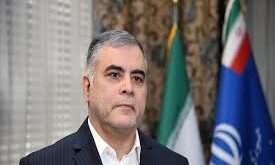A prominent politician from Iraq’s southern oil hub of Basra has threatened to take the government to court to push forward growing demands for autonomy in a region that has seen widespread protests over lack of public services and poor governance.
`We presented our request for secession from Baghdad`s central government in 2015 with over 68.000 signatures.` Mohamed Al Tai. a former member of parliament for Basra.
`Our request was passed by the electoral commission. as Article 119 of the Iraqi constitution allows individual provinces to transform into federal regions.` he said.
Prime Minister Haider Al Abadi`s office has not acted on their appeal so far.
According to Iraq`s constitution. any of its 19 provinces can hold a referendum on autonomy if it is supported by signatures from 10 per cent of voters.
Mr Al Tai said he would file a complaint to the supreme federal court as the lack of a action `has delayed our demands for a referendum which was passed by the electoral commission`.
More than a dozen members of Basra`s provincial council have also called for establishing a federal province.
Citizens of Basra see themselves as marginalized by successive governments since the US-led invasion to topple Saddam Hussein in 2003. even though its port accounts for more than 90 per cent of Iraq`s oil export revenues.
“Since 2003. the situation in Basra has deteriorated. it has gone from bad to worse. Twenty-five per cent of Basrans are living below the poverty line. people are spending one dollar a day.` Mr Al Tai said.
Residents of Basra and other southern provinces have been protesting for more than a month over political corruption and the government`s failure to provide clean water. reliable power supply and jobs. The unrest has spread north to Baghdad.
`We want to get rid of corruption. inadequate public services.` Haider Ali. a resident of Basra. told The National. `The only way forward is to have independence from the central government. What have they done for us so far?`
Mr Al Abadi`s government said in July that it would release funds to improve water supply. electricity and health services in Basra. Residents say they have seen no improvements.
Lack of transparency and unreliable governance has been at the heart of Iraq’s woes. made worse by the effects of a costly three-year war against ISIS that coincided with a dip in oil prices.
Iraq is ranked 169 out of 180 countries in Transparency International’s corruption perception index. with the lowest state being the most corrupt.
The calls for autonomy come at a delicate time for Iraq as newly elected politicians try to form a governing coalition. The results of the May 12 election were only ratified by the supreme court on Sunday after allegations of fraud forced a partial recount of votes.
Mr Al Abadi is heading a fragile caretaker government until the new government is formed.
The recount confirmed the surprise electoral win for populist cleric Moqtada Al Sadr whose coalition campaigned on an anti-corruption platform. Mr Al Abadi`s coalition came in third. behind a group led by Hadi Al Ameri. leader of the Hashed Al Shaabi paramilitary.
 Iran Energy News Oil, Gas, Petrochemical and Energy Field Specialized Channel
Iran Energy News Oil, Gas, Petrochemical and Energy Field Specialized Channel




